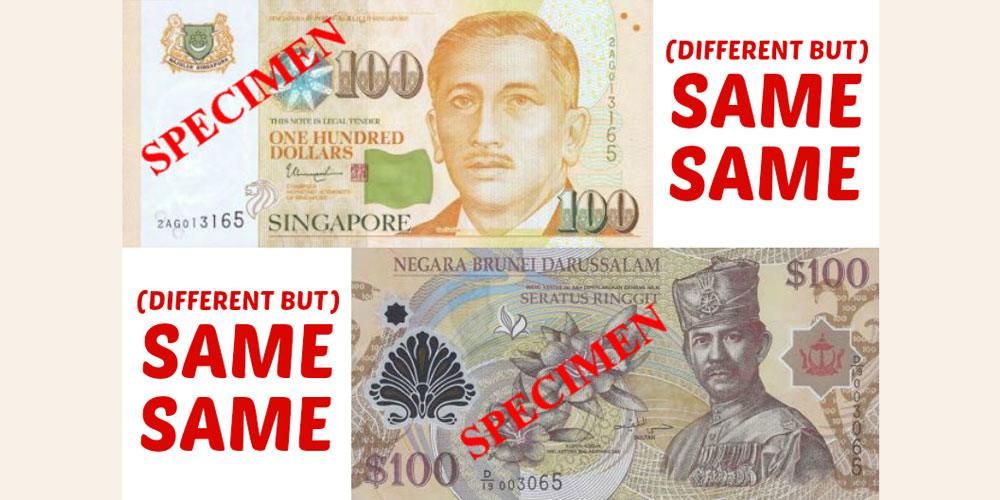The two smallest countries in ASEAN - Singapore and Brunei - enjoy a special relationship, a fact many Singaporeans may not know.
Today, we are able to use Brunei notes and coins here in Singapore at no extra charges and without the need to change the currency to Singapore dollars under the Singapore-Brunei Currency Interchangeability Agreement (CIA) signed in 1967. This is the only such arrangement in Asia.
Here are 5 interesting things to know about the special arrangement as we celebrate half a century of partnership.
1. A long history: Singapore-Brunei relations
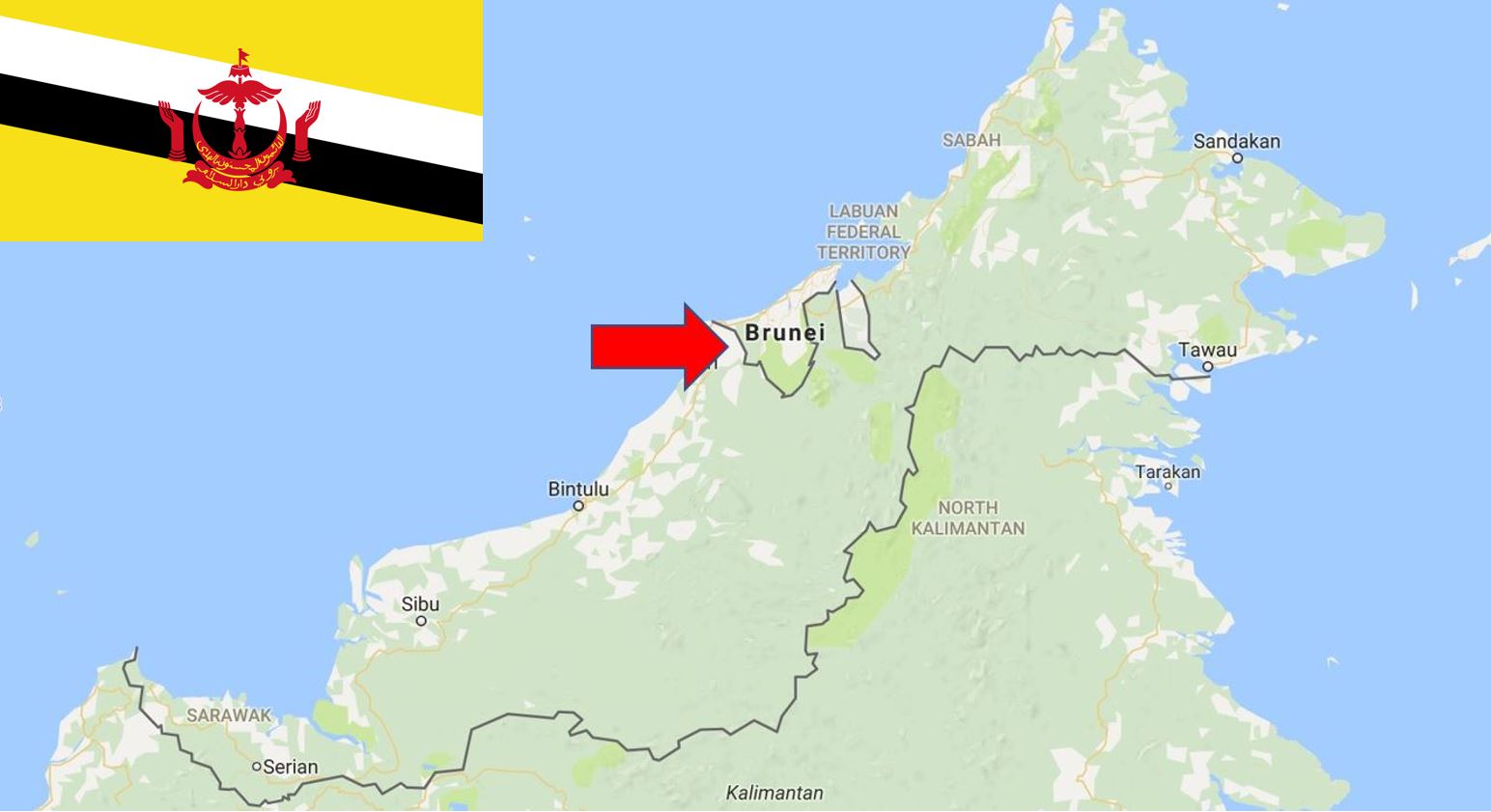
With a population of slightly more than 430,000 people, Brunei is a small but prosperous state due to her rich oil and gas reserves.
Brunei and Singapore established official relations in 1984 after it gained independence. Though we have 33 years of official relations to date, our strong and close ties date back much longer.
The foundation of Singapore and Brunei's friendship was laid by founding Prime Minister Lee Kuan Yew and the late Seri Begawan. They first met in 1960 in Brunei, when Singapore's Yang di-Pertuan Negara Yusof Ishak visited the place. At that time, Mr Lee and the Seri Begawan saw that both Singapore and Brunei were facing similar challenges, and had much in common. This led the two government leaders to begin cooperating in many fields, including economics, defence, and education. Together, the two governments have partnered well through common causes. In international forums, Singapore and Brunei have also worked together to advance each other's interests.
The 1967 Singapore-Brunei CIA is one of the most significant milestones in the bilateral relationship.
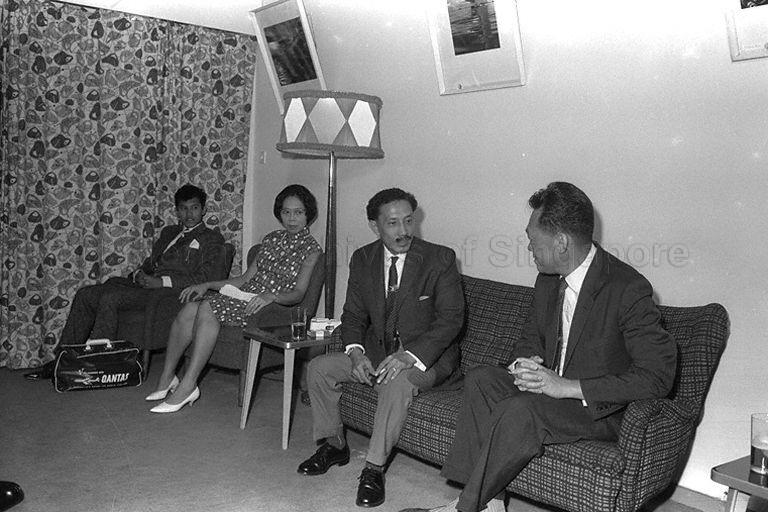 The late Mr Lee Kuan Yew and Mrs Lee with the Sultan of Brunei on his arrival at the Paya Lebar International Airport in 1964. Photo via National Archives of Singapore (Ministry of Communications and Information)
The late Mr Lee Kuan Yew and Mrs Lee with the Sultan of Brunei on his arrival at the Paya Lebar International Airport in 1964. Photo via National Archives of Singapore (Ministry of Communications and Information)
2. Malaysia was once part of the three-country Currency Interchangeability Agreement until 1973
We can trace the history of the CIA to the late 19th century. In the early 20th century, the Board of Commissioners of Currency for the Straits Settlements (comprising Singapore, Penang and Malacca) issued Straits Settlements currency notes. Brunei then had colonial and economic links with the Straits Settlements, and therefore the Straits dollar was also used in Brunei.
When Malaysia gained independence in 1957, Malaysia wanted to issue its own currency beginning from December 1966. Brunei, which was still under British administration then, was also considering its own currency issuance arrangements.
Singapore became independent on Aug 9, 1965. Initially, Singapore wanted to share a common currency with Malaysia, however despite multiple discussions between the two governments then, they eventually decided to separate monetarily, as there were differences in maintaining a common currency.
Singapore, Malaysia and Brunei began issuing three separate currencies on Jun 12, 1967: the Singapore dollar, the Malaysian dollar, and the Brunei dollar. Later on, Singapore, Malaysia and Brunei signed Currency Interchangeability Agreements with each other.
On May 8, 1973, the Malaysian government pulled out of the agreement with Singapore and subsequently with Brunei two weeks later.
Today, the agreement has worked well for both Singapore and Brunei. As said in a speech by the late Mr Lee Kuan Yew in Bandar Seri Begawan:
"This Agreement reflects our long-standing friendship and mutual trust, and has deepened economic ties between Brunei and Singapore."
 The late Mr Lee Kuan Yew called on Sultan Haji Hassanal Bolkiah Mu'izzaddin Waddaulah of Brunei Darussalem at the Grand Hyatt Hotel in 2005. Photo via National Archives of Singapore (Ministry of Communications and Information)
The late Mr Lee Kuan Yew called on Sultan Haji Hassanal Bolkiah Mu'izzaddin Waddaulah of Brunei Darussalem at the Grand Hyatt Hotel in 2005. Photo via National Archives of Singapore (Ministry of Communications and Information)
3. We've $50 commemorative notes? Nice.
Launched by Brunei Sultan Hassanal Bolkiah who is in town for a two-day visit, and together with PM Lee Hsien Loong today, the commemorative S$50 and B$50 notes celebrate the 50th anniversary of the CIA and our special relations with Brunei.
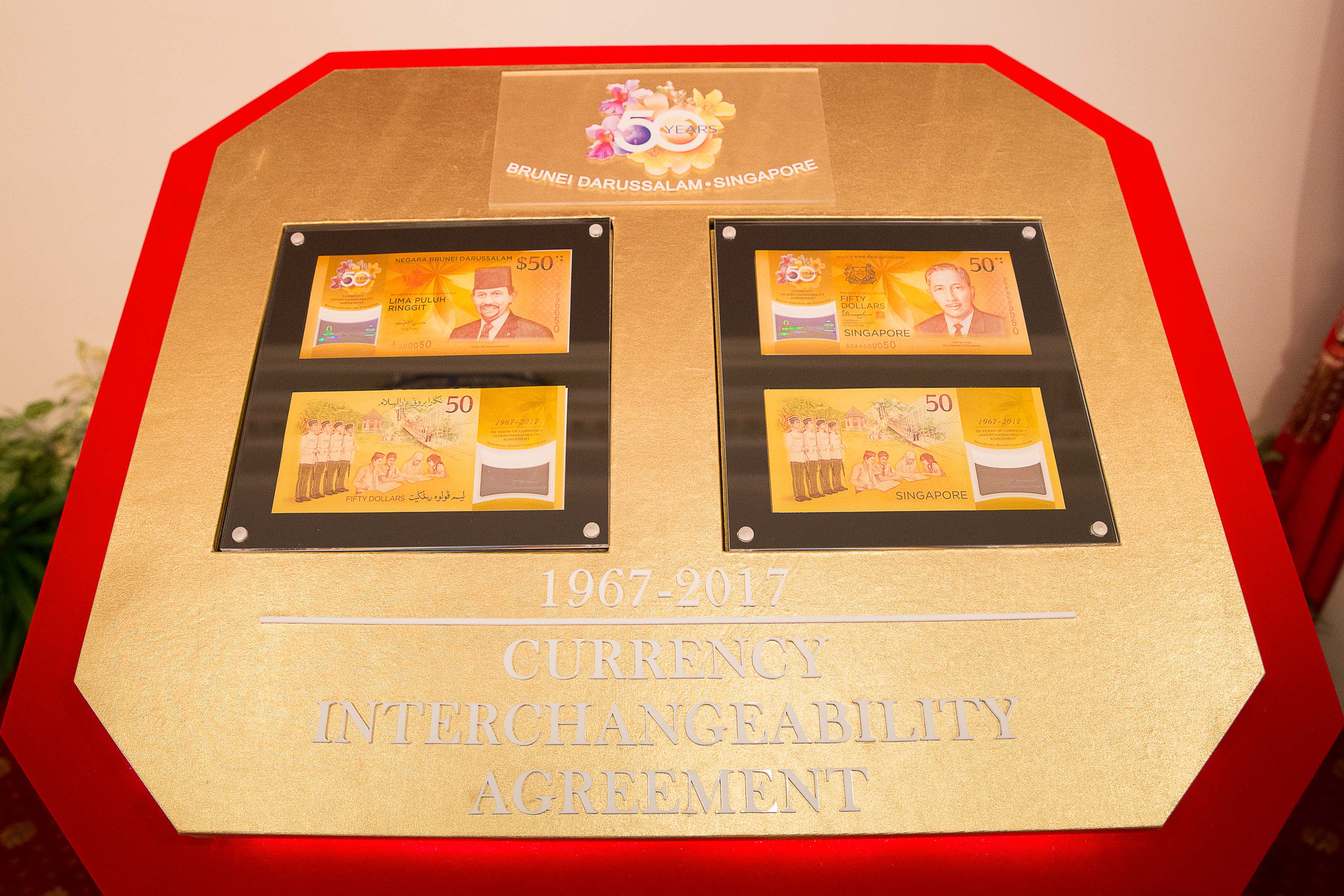 Photo of the $50 Commemorative Polymer Notes comprising one Brunei $50 note and one Singapore $50 note. These were launched at the Istana on 5 July 2017. Photo courtesy of the Monetary Authority of Singapore
Photo of the $50 Commemorative Polymer Notes comprising one Brunei $50 note and one Singapore $50 note. These were launched at the Istana on 5 July 2017. Photo courtesy of the Monetary Authority of Singapore
These $50 commemorative notes will be available to the public from Jul 7, 2017.
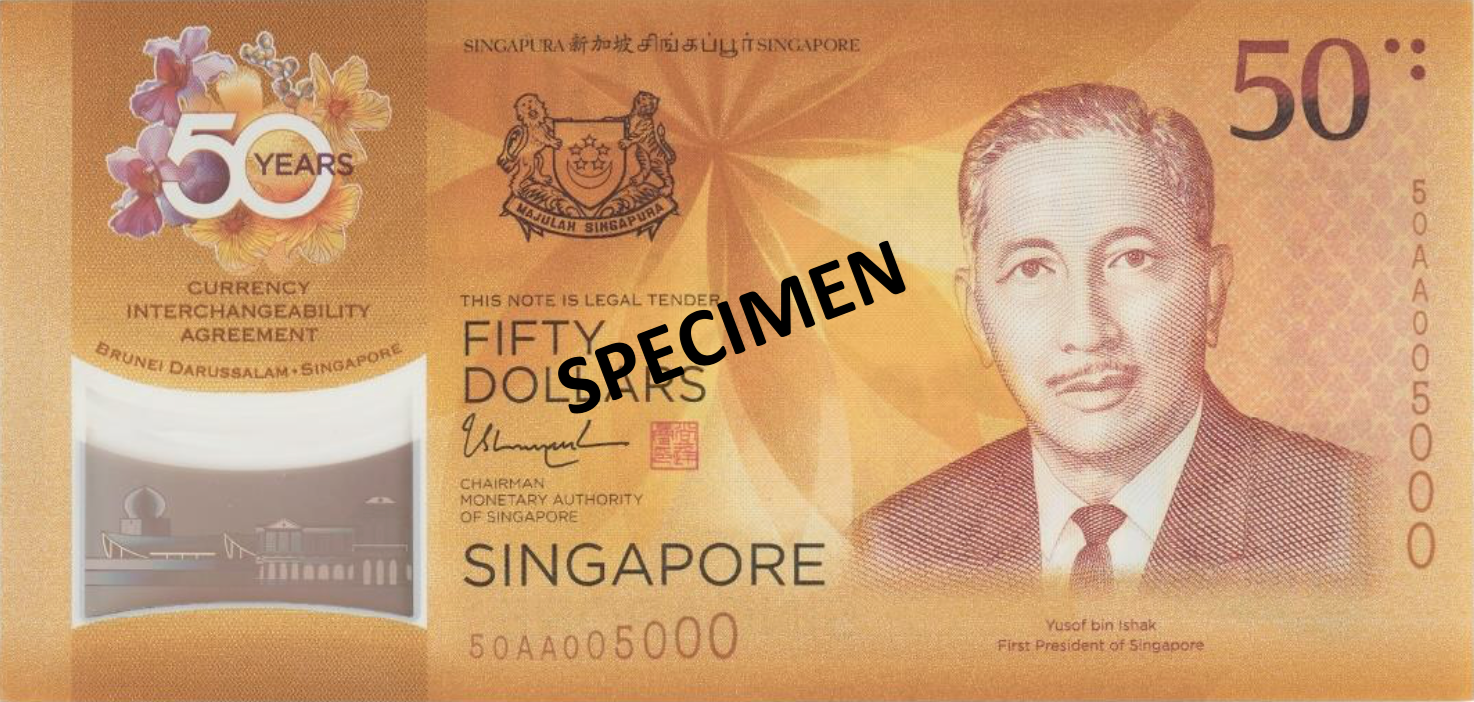 50th Anniversary $50 Commemorative Notes (Singapore Version, Front). Photo via Ministry of Communications and Information
50th Anniversary $50 Commemorative Notes (Singapore Version, Front). Photo via Ministry of Communications and Information
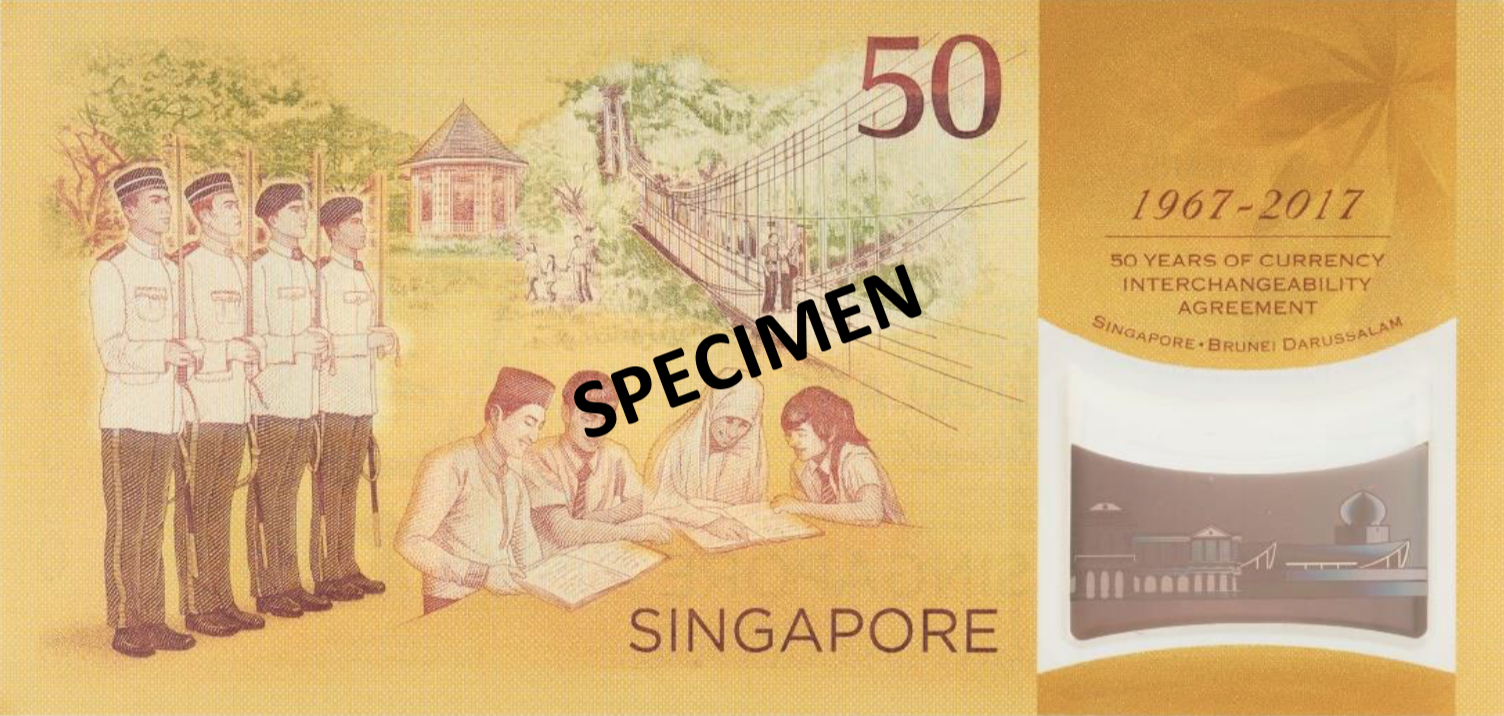 50th Anniversary $50 Commemorative Notes (Singapore Version, Back). Photo via Ministry of Communications and Information
50th Anniversary $50 Commemorative Notes (Singapore Version, Back). Photo via Ministry of Communications and Information
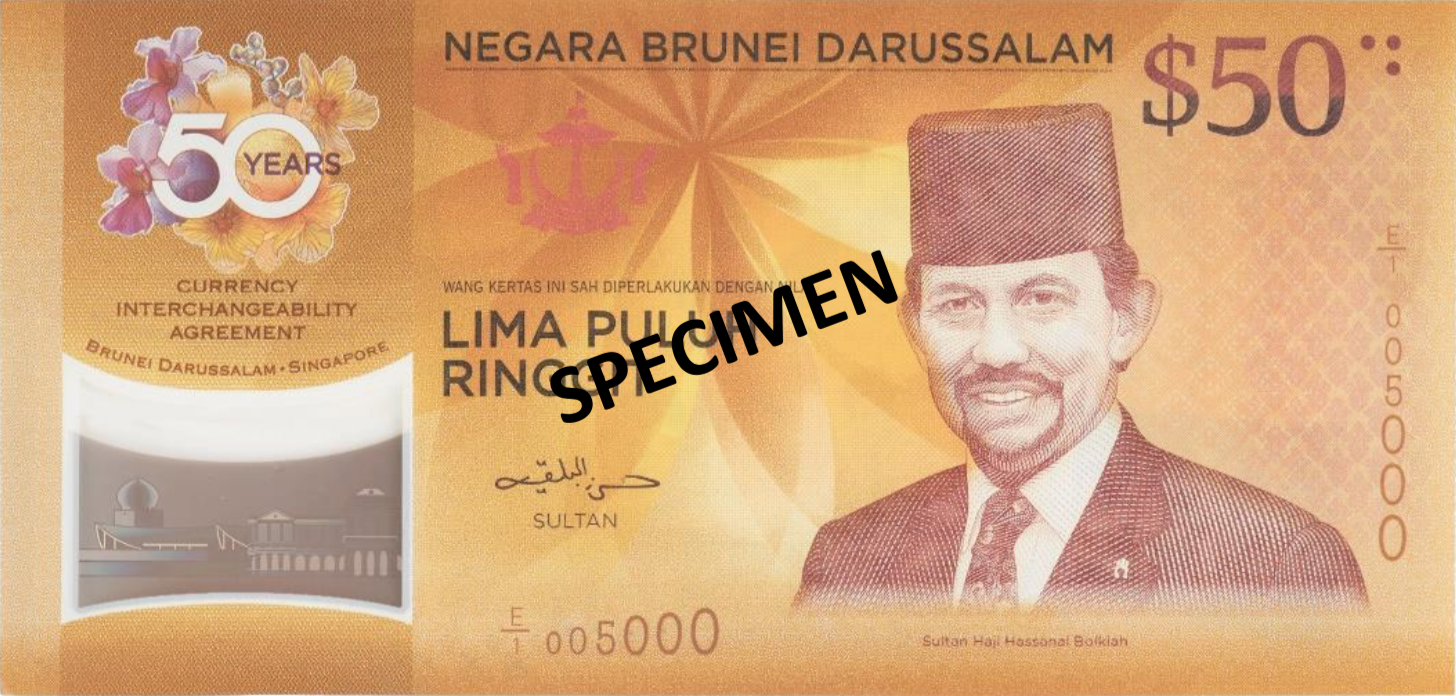 50th Anniversary $50 Commemorative Notes (Brunei Version, Front). Photo via Ministry of Communications and Information
50th Anniversary $50 Commemorative Notes (Brunei Version, Front). Photo via Ministry of Communications and Information
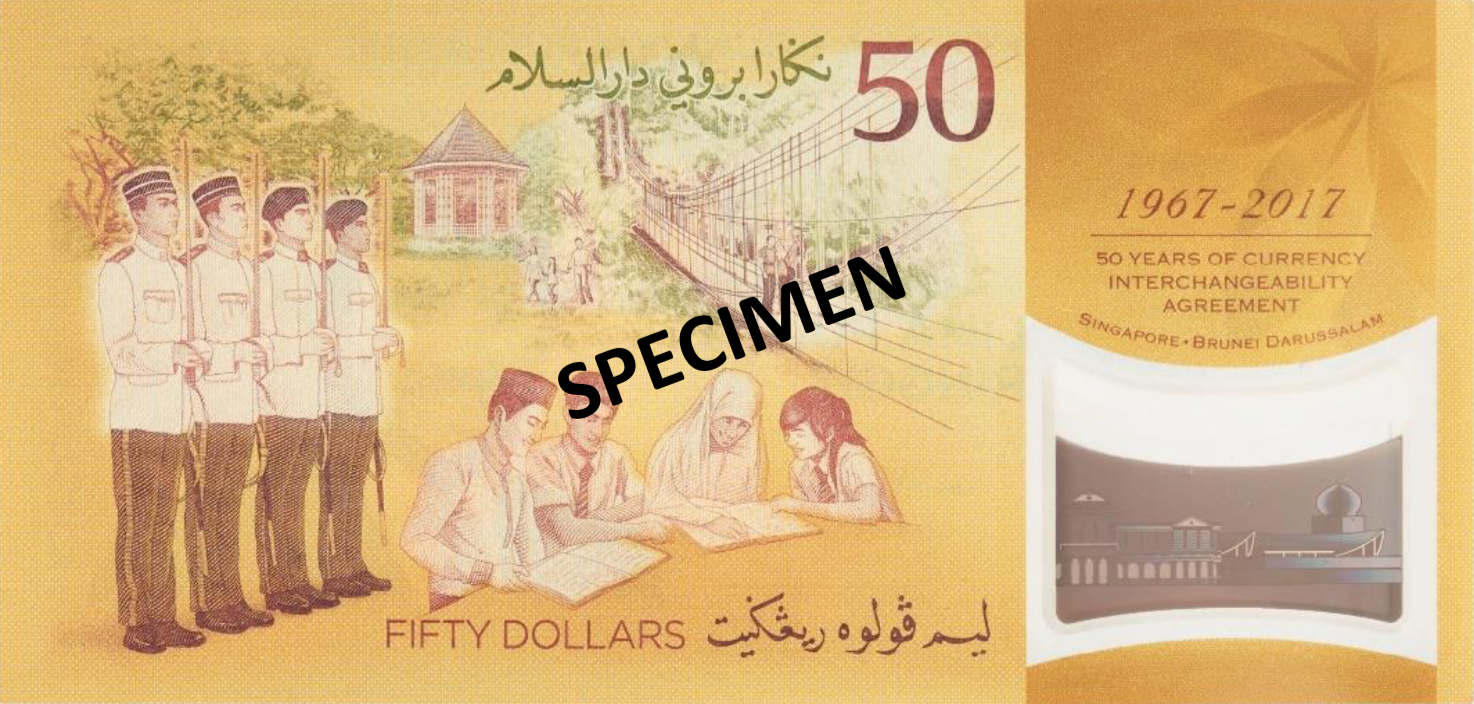 50th Anniversary $50 Commemorative Notes (Brunei Version, Back). Photo via Ministry of Communications and Information
50th Anniversary $50 Commemorative Notes (Brunei Version, Back). Photo via Ministry of Communications and Information
4. "Customary Tender", not "Legal Tender". Whut?
Okay we can explain.
Under the agreement between Brunei and Singapore, each country undertakes to accept the currency issued by the other and to exchange them, at par and without charge, into their own currency.
All banks in Singapore are obliged to exchange Brunei currency notes and coins at par and without charge. However, local businesses in Singapore are not obligated to accept Brunei currency, but are widely encouraged to do so.
Today, the Monetary Authority of Singapore (MAS) works with the Singapore Tourism Board (STB), National Environment Agency (NEA), Housing Board Development (HDB), and other relevant trade and business associations to remind their stakeholders (e.g. hawkers, retailers, coffee shop owners) of the CIA, as well as to accept Brunei currency as payment.
5. Problems using Brunei currency in Singapore? No need to call the police.
Based on anecdotal accounts, it seems that some people still face problems when using Brunei currency in Singapore.
We surveyed 50 shop owners and service staff in Orchard Road and Raffles Place and discovered 9 of them rejected Brunei currency. Among them, 3 refused to accept despite being aware of the CIA.
Those that did not accept Brunei currency are mainly smaller family-owned businesses, while all the high-end and franchise stores accepted them.
These numbers may not be large, but it shows that some may have forgotten about the long history of the CIA between the two countries.
According MAS, if you face any difficulty using Brunei currency in Singapore, you may inform MAS by sending them an email at [email protected] or calling them at (65) 6225-5577 with the following details:
1) Name of Company (full address);
2) Date and time of the incident; and
3) Details of the purchase and what was said by the retailers.
That said, if I were you, all money is money lah. As long as they are of equivalent value - I'd definitely accept it too.
Here are totally unrelated but equally interesting articles:
Top 8 moments from short local films that will make you proud of our film industry
These are the most difficult things a Singaporean employee has to learn
Top photos via Bank Note News (image 1 & image 2)
If you like what you read, follow us on Facebook, Instagram, Twitter and Telegram to get the latest updates.
